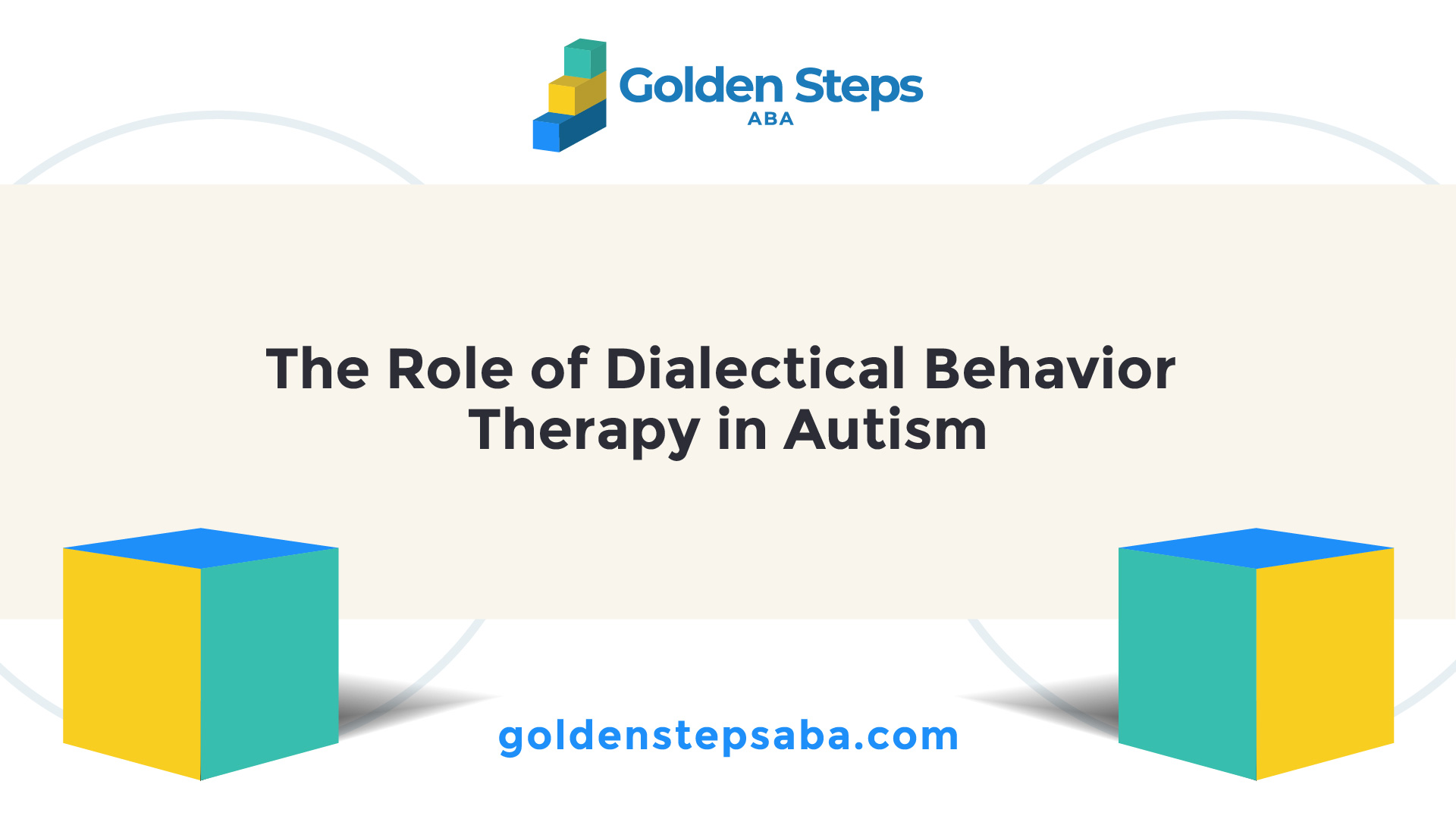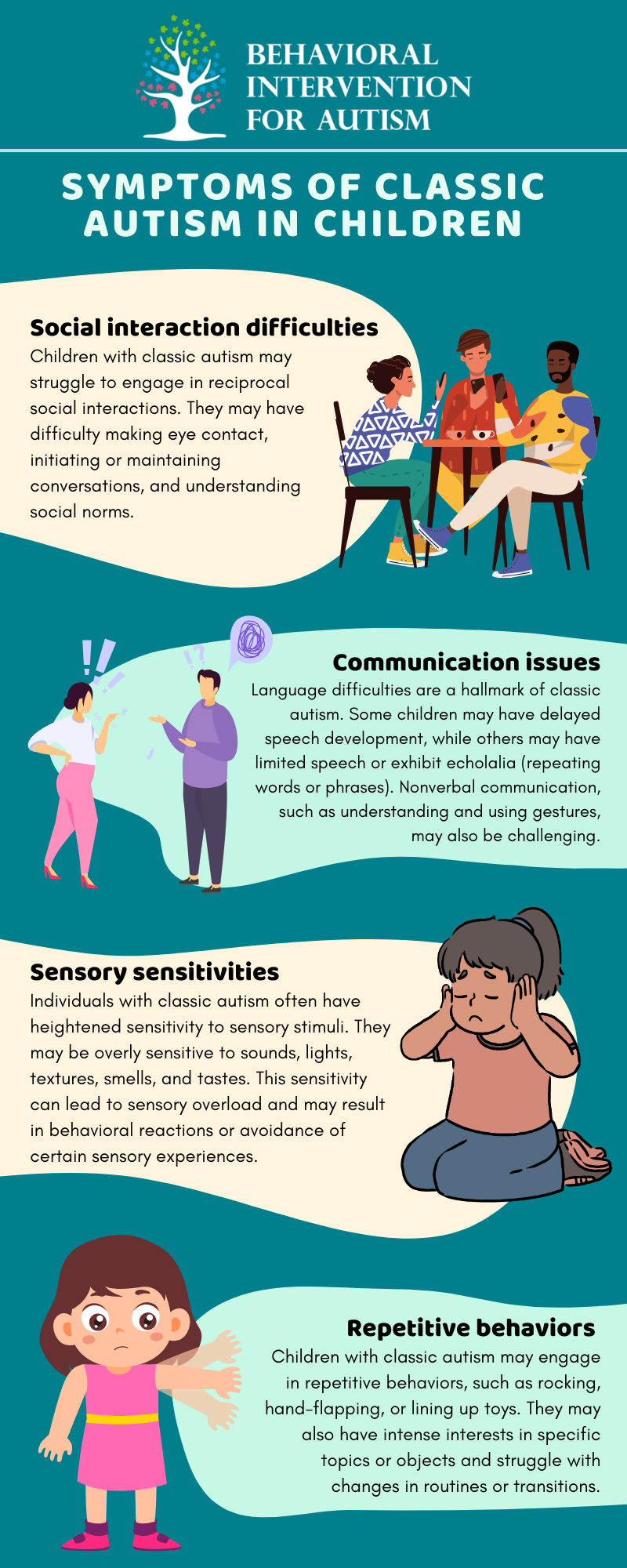Using Autism Behavioral Therapy, families can enhance independence in daily routines
Using Autism Behavioral Therapy, families can enhance independence in daily routines
Blog Article
Key Symptoms And Signs to Recognize in Individuals With Behavioral Autism
When you experience a person with behavior autism, identifying essential indicators and symptoms is essential. Additionally, sensory sensitivities can lead to overwhelming experiences.
Difficulties in Social Communications
When you interact with somebody on the autism range, you might notice they deal with social cues and interaction. These obstacles can make social interactions feel frustrating for them. You might see them avoiding eye get in touch with or standing too close or too much away during discussions, which can create misconceptions. They could not select up on body movement or face expressions, making it harder for them to determine just how others are really feeling.
When they do involve, they might speak regarding their rate of interests in fantastic detail without seeing if you're interested. Recognizing these difficulties can aid you come close to communications with empathy and patience, promoting a more comfortable environment for both of you.
Trouble With Verbal and Non-Verbal Interaction

Non-verbal communication can be much more tough. You could see a lack of eye call or limited use gestures, which can make communications feel unpleasant. Faces may not constantly align with the conversation, bring about complication about their feelings. Recognizing these signs is necessary, as it helps you far better assistance and involve with people on the autism range. By recognizing their interaction obstacles, you can cultivate more purposeful links and offer an extra helpful atmosphere.
Repetitive Habits and Routines
Communication difficulties typically go along with other indications of autism, such as recurring habits and a solid preference for regimens. You might see that individuals with autism commonly engage in specific, repetitive activities, like hand-flapping, rocking, or repeating expressions. These behaviors can offer comfort and a feeling of control in a commonly overwhelming world.
Regimens are similarly essential; lots of individuals thrive when they follow a structured routine. You might discover that adjustments to these routines can cause substantial distress. For instance, if they have a daily routine of eating morning meal at a details time or complying with a specific path to college, any disturbance can trigger anxiousness.
Identifying these patterns helps you comprehend their habits and provide assistance. By fitting their requirement for routine and allowing recurring actions, you can create a much more comfy environment that eases their challenges.
Sensory Sensitivities

Common Sensory Triggers
Sensory level of sensitivities can significantly impact day-to-day life for individuals with autism, as specific stimulations frequently trigger overwhelming responses. Common sensory triggers include loud noises, intense lights, and solid scents. You might discover that unexpected sounds, like alarms or alarms, trigger anxiety or distress. Fluorescent lights in shops can feel rough and awkward. Structures can also play a considerable duty; harsh textiles or particular food structures may be excruciating for you. In addition, crowded areas can bewilder your detects, making it hard to focus or unwind. Comprehending these triggers can aid you handle your setting much better. By knowing what impacts you, you can take actions to lessen discomfort and boost your day-to-day experiences.
Behavior Reactions Described
Understanding your behavior feedbacks to sensory level of sensitivities is crucial, as they often disclose exactly how you communicate with the globe. You might notice that particular noises, lights, or structures overwhelm you, bring about stress and anxiety or discomfort. When confronted with these stimulations, you may take out, cover your ears, and even react boldy. These actions aren't just traits; they're your means of handling overstimulation. You may additionally discover yourself looking for certain sensory experiences, like deep pressure or silent environments, to aid ground yourself. Recognizing these patterns helps you comprehend your needs far better and visit the site can guide just how you interact them to others. By recognizing your sensory sensitivities, you can function in the direction of creating a setting that feels a lot more comfortable and workable for you.
Coping Methods Review
Identifying your sensory level of sensitivities is just the very first step; now it's time to discover coping approaches that can help you manage those experiences efficiently. Start by developing a sensory toolkit customized to your needs. Developing a structured regimen can additionally supply predictability, decreasing stress and anxiety around sensory overload.
Restricted Interests and Emphasis
While lots of individuals create a wide array of interests, those with autism commonly demonstrate limited rate of interests and an intense concentrate on specific subjects. You might discover that somebody with autism can invest hours diving right into their preferred topic, whether it's a certain type of train, a certain flick, or a clinical concept. This extreme focus isn't simply a leisure activity; it can become a main part of their identification and social interactions.
You may find that discussions revolve around these passions, and they may battle to participate in more comprehensive topics. For them, these concentrated rate of interests give convenience and a feeling of mastery. While it is essential to motivate exploration of brand-new subjects, appreciating their interests is similarly necessary. By understanding and acknowledging these restricted rate of interests, you can foster a helpful environment where they really feel valued click here to read and recognized, permitting even more meaningful connections and communications.
Emotional Guideline Troubles
Individuals with autism usually deal with challenges in emotional regulation, which can be affected by their extreme concentrate on particular passions. You might notice that when a person is deeply involved in a preferred task, they can experience strong emotions, whether excitement or disappointment. When things don't go as intended., this intensity in some cases makes it difficult for them to change gears or handle their sensations - Autism Spectrum Therapies.

Variability in Developmental Turning Points
When it comes to developing landmarks, you'll see that people with autism typically show a broad range of irregularity. You could see a child excel in language skills but struggle with social interactions.
It's crucial to identify that each individual's journey is special. Some may develop complex abilities early, just to deal with difficulties later on. Others might take longer to achieve standard landmarks however after that prosper in certain areas. Observing these patterns can help you recognize their strengths and requires much better.
Frequently Asked Inquiries
Just How Is Autism Detected in Kid and Adults?
To diagnose autism in youngsters and grownups, experts assess actions, interaction abilities, and social interactions. They commonly utilize standardized examinations, interviews, and monitorings to figure out if a private fulfills the requirements for autism spectrum problem.
Are There Various Kinds of Autism Spectrum Disorders?
Yes, there are various kinds of autism range problems, including Asperger's disorder and pervasive developing disorder-not or else specified. Each kind varies in intensity and attributes, so understanding these distinctions can aid you far better assistance individuals with autism.
What Treatments Work for People With Autism?
When considering efficient therapies for individuals with autism, you'll locate options like Applied Habits Evaluation, speech treatment, and occupational therapy. Each strategy can help improve communication, social abilities, and daily functioning tailored to private demands.
Can People With Autism Lead Independent Lives?
Yes, individuals with autism can lead independent lives. With the appropriate support, abilities training, and sources, you can aid them develop self-sufficiency, handle day-to-day tasks, and flourish in numerous environments, promoting their self-reliance.
How Can Family Members Support Loved Ones With Autism?
You can support your liked ones with autism by producing an organized environment, encouraging their interests, practicing persistence, promoting interaction, and promoting social abilities. Commemorate their achievements, no matter how little, and build an encouraging community.
Although many individuals on the autism spectrum can understand and make use of language, they frequently deal with considerable challenges with both spoken and non-verbal interaction. Recognizing these signs is important, as it helps you far better assistance and involve with people on the autism spectrum. You might notice that people with autism typically engage in specific, repetitive activities, like hand-flapping, rocking, or repeating phrases.Sensory sensitivities can considerably impact day-to-day life for people with autism, as specific stimuli commonly activate overwhelming responses.When it comes to developing turning points, you'll notice that people with autism usually reveal a wide array of variability.
Report this page